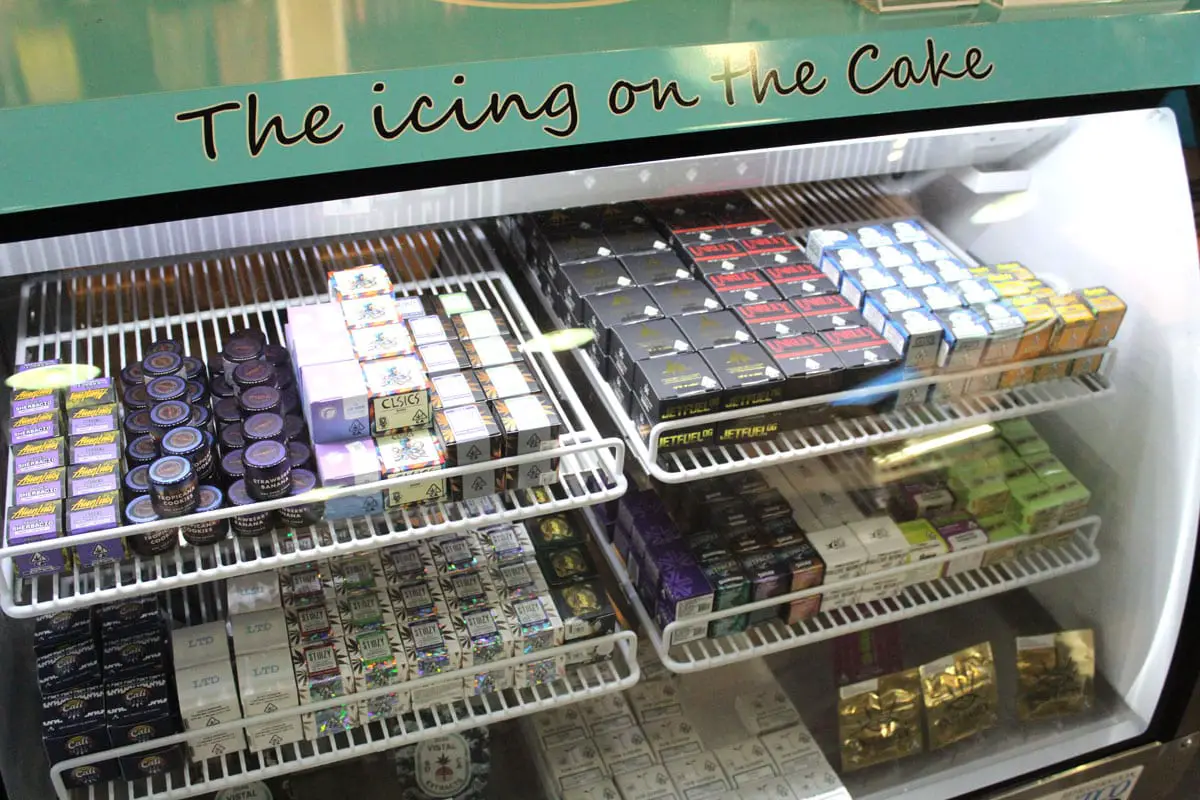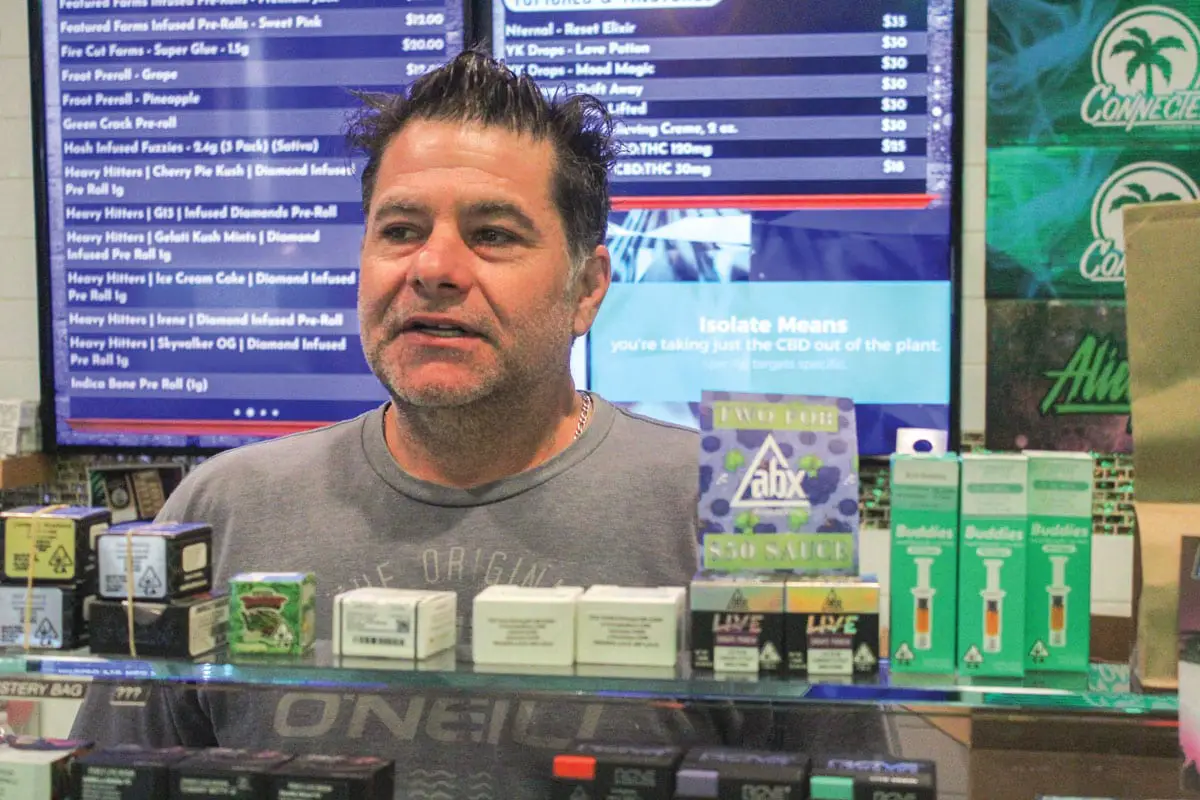EDITOR’S NOTE: This is part of The Coast News’ three-week series on cannabis in North County.
REGION — Five years ago, California’s approval of Proposition 64 opened the door to recreational marijuana and budding new local economies.
The proposition was billed as a win for increased tax revenues, entrepreneurship, jobs and the hope of beating back marijuana’s long-established and vast illicit cannabis market.
But the reality of legalization has been somewhat underwhelming, with retail businesses struggling to break even and illegal markets still responsible for roughly 80% of cannabis transactions, according to MJBiz Daily, a marijuana industry publication.
While many municipalities have been reluctant to join the multi-billion industry, several North County cities have legalized recreational cannabis, including Vista, Oceanside and Encinitas, allowing retail sales, distribution, manufacturing, testing, growing and delivery.
But the barriers to entry — taxes, fees and other regulations — make it difficult for small business owners to garner a profit, according to Vista cannabis store owners Jon Jesse, of Dr. GreenRX, and Daniel Wise, of The Cake House.
Laura Wilkinson Sinton, a pro-marijuana advocate with AFC Products in Coronado, said in general, Prop. 64 is good for the state. However, the biggest issue comes with cities or counties not legalizing the industry.
“Prop. 64 leaves most of the power in the cities and counties’ hands,” said Jesse. “There’s a ton of taxes in it and there’s a ton of revenue in it and there is a huge demand for it.”
About Prop. 64
According to the measure, Prop. 64 legalized adult cannabis use (21 or older); created the Bureau of Cannabis Control (now the Department of Cannabis Control); imposed an excise tax of 15% on retail sales and cultivation taxes of $9.25 per ounce for flower and $2.75 for leaves; established packaging, labeling, advertising and marketing standards; prohibits direct marketing to minors; allows local taxes and regulations; and authorized resentencing and destruction of records for prior marijuana convictions.
Revenues from Prop. 64 are required to help cover law enforcement and administration, invest in public health programs to educate youth and treat serious abuse, driving under the influence enforcement, create jobs, reduce illegal sales, and provide environmental cleanup and restoration on public lands damaged by illegal grows. Cannabis businesses cannot be located within 600 feet of schools or other areas where children “congregate.”
As for tax revenue generated from cannabis sales, the California Department of Tax and Fee Administration reported California’s cannabis excise tax earned $172.3 million and sales tax revenue garnered $120.5 million, totaling $333.2 million in tax revenue for the second quarter of 2021. Since 2018, the state has collected $2.8 billion.

Despite this windfall, the illegal cannabis market, or “black market,” is still thriving. According to industry insiders and media reports, the black market is three times larger than the legal market, worth an estimated $20 billion or more. The sustained success of cheap, illicit-market cannabis has largely been attributed to an enormous tax burden on legal entities and a lack of coordinated enforcement.
“(Department of Cannabis Control) are gravely understaffed,” Wilkinson said, noting there are other agencies dedicated to the industry but will be consolidated next year. “You have three regulatory agencies and that, of course, increases the risk of one telling you one thing and the other telling you another.”
Additionally, Forbes reported legal cannabis farmers are overproducing crops but cannot sell because most cities limit the number of dispensaries, resulting in the criminal infiltration of legal dispensaries and “diversifying” how products are sold.
A recent lawsuit filed by HNHPC, parent company to Catalyst Cannabis Co., alleges the Department of Cannabis Control, has turned “a blind eye” to allowing criminals to gain control of legal distribution permits and divert millions of pounds of marijuana out of state before its funneled into the black market, according to MJBiz Daily.
Where the state bungled the issue, Wise said, is levying such a heavy tax burden on legitimate business owners from the onset. Wise suggested a 0% retail tax rate for the first two years so the legal market could “crush the black market.”
Wise still advocates for a significantly reduced tax rate.
“All cannabis businesses that touch the plant are not allowed to deduct taxes that have to do with their businesses outside of the cost of goods sold,” Wilkinson said, referring to the Internal Revenue Service’s Tax Code 280e. “The IRS has applied that to cannabis, which is hard on the industry. They are not making the margins people think they are.”
Barriers to entry
Both Jesse and Wise, who own cannabis storefronts in Vista, said excessive taxes, high startup costs and difficulty leasing property are significant roadblocks for prospective cannabis shop owners.
Currently, the state mandates a 15% excise tax. On top of that, Measure Z tacks on a 7% tax in addition to the mandatory 8.25% sales tax.
In total, one retail store pays at least 43% in taxes, which only serves to drive product costs skyward. Legal consumers typically pay more for cannabis than pot obtained on the illicit-cannabis market, giving illegal dealers a competitive advantage, both Jesse and Wise said.

“I think the intention of Prop. 64 was good, but I think it was written by people who didn’t understand the current state of the industry,” Wise said. “With the taxes, it makes it very difficult to compete with the black market.”
In most industries, businesses can write off specific business expenses and payroll. But Jesse and Wise said that is not the case with cannabis, which means there is less for the business and its employees.
Wise, a Navy veteran, owns 26 stores across the state in different stages of operation, with six fully open for business. Wise said he is profitable because he scaled back his business model and makes bulk purchases at a lower rate.
For startup costs, Jesse said it took between $300,000 to $500,000 to open Dr. GreenRx. Wise started his company in Los Angeles with $38,000 he received after leaving the military. But Wise said in most cases, startup costs are going to run at least $1 million. But that doesn’t factor in additional challenges, such as finding a property to rent, construction costs, security and labor.
According to Jesse, some landlords won’t allow lease agreements with marijuana businesses because the drug is still illegal under federal law. Property owners with a mortgage are much less likely to rent to a cannabis store in fear of the bank calling its note due.
Wise said there have been several such cases in L.A., which damages both the landlord and business.
Also, Jesse said when he was gearing up to launch his businesses, he was able to find a location but had to pay rent for six to 24 months prior to opening because of the wait for the appropriate state and city licenses.
“This is a land-use thing, is what it really is,” Jesse said. “Tying up a property at five years for $10,000 per month. That is a lot of money and holds a lot of people back. A good $100,000 is carrying a property you may not even be able to operate in.”
Other roadblocks
According to Wilkinson Sinton, not only are those municipalities leaving tax revenue on the table, but it also doesn’t help fight the illicit cannabis market.
Wilkinson Sinton said she’s been surprised Democratic-led cities have continued bans considering Democrats overwhelmingly voted for and campaign on legalization. However, the county, which has three Democrats on the Board of Supervisors, has reversed course and approved recreational.
Regardless of political affiliation, Wilkinson Sinton said any municipality legalizing cannabis is ahead of the curve, along with padding coffers and reducing illegal retail stores.
“The rules of retail don’t stop because it’s cannabis,” Wilkinson Sinton added. “Because of the pandemic, commercial real estate is hurting. You are seeing a little of loosening (allowing retail in properties with bank loans) of that a bit.”
Wilkinson Sinton said her advocacy has also gone up against law enforcement, as peer-reviewed studies show a decrease in crime when a dispensary opens in a neighborhood. Opponents push back against those studies, arguing there are other factors involved in the decline.
Wilkinson Sinton said crime is up near illegal grow operations because municipalities have not legalized cannabis. Sinton said the only bad actors are using storefronts to export illegally, while a vast majority are following the laws and regulations created by the state and their respective municipality.
"heavy" - Google News
October 18, 2021 at 11:50PM
https://ift.tt/2XoWlUh
Growing pains: Prop 64 unleashed recreational pot, but with heavy financial burdens - Coast News
"heavy" - Google News
https://ift.tt/35FbxvS
https://ift.tt/3c3RoCk
heavy
Bagikan Berita Ini
















0 Response to "Growing pains: Prop 64 unleashed recreational pot, but with heavy financial burdens - Coast News"
Post a Comment